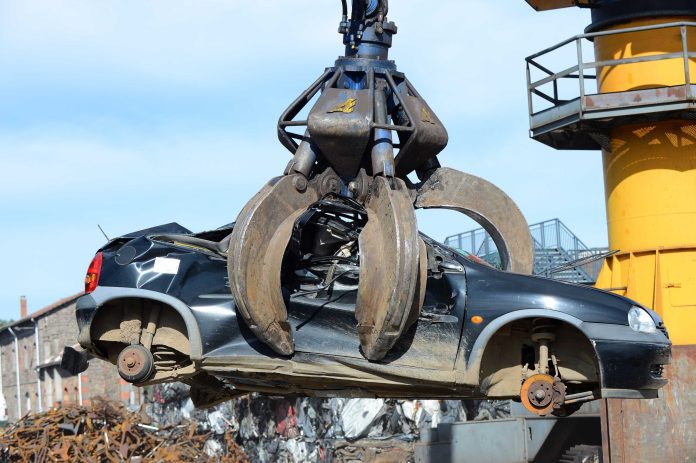One of the benefits of selling your old automobile to a cash-for-cars shop is that they’ll accept nearly any vehicle. Regardless of your vehicle’s make, model, and condition, you can sell it in exchange for cash.
Places like Cash For Cars Hamilton can afford to buy any vehicle in any condition because they can still profit from it, even if it can’t be resold. Cars can be wrecked, recycled, or salvaged for parts.
What is auto recycling?
Although your vehicle may be most valuable to you when it’s operational, even a broken-down car has value. Auto recycling involves stripping old vehicles to salvage metals and other recyclable components. These are smelted and reused for different products.
Metal is the most valuable recyclable material. Steel is the most commonly used metal in automobiles, but you’ll also find other beneficial minerals like aluminium, platinum, magnesium, and titanium. All of these minerals are nonrenewable resources, so anything that can be salvaged becomes valuable. (1)
The auto recycling industry is more significant than you might expect. Automobiles are the most recycled product globally. About 80% of a vehicle’s weight is recyclable, mostly steel. Additionally, 25% of a car’s body comes from recycled steel. Metal recovered from out-of-order vehicles contributes around 40% of the scrap processing industry’s ferrous metals. Other parts, like batteries and tyres, are also recycled for different purposes. (2)
How does the car recycling process work?
There are four main steps in the car recycling process. Here’s what places like Car Wreckers Hamilton do with your vehicle when you sell to them:
- Inspection
Before anything else, the vehicle needs to go through a detailed inspection. The primary purpose of this step is to determine whether it would be better to repair or recycle the automobile. If repair would cost too much to be worth it, it’ll move on to the next steps. Otherwise, the vehicle will be repaired and resold for profit.
- Removing pollutants
Cars contain several different fluids, all for various functions. It’s well known that combustion in the engine releases harmful gases like carbon monoxide, hydrocarbons, and nitrogen dioxide. Any harmful fluids and substances in an unused vehicle can pollute the environment. (3)
Seven hundred fifty thousand gallons can be contaminated with just one gallon of gasoline and 1,000,000 gallons of fresh water with one gallon of used motor oil. To prevent the leakage of chemicals into the environment, all recycled cars need to be drained and cleaned of all potential pollutants. Gasoline, motor oil, and other fluids are the primary targets in this step. (4) (5)
These liquids will be filtered, refined, recycled, or safely disposed of.
- Dismantling and salvaging
After being cleared of all pollutants, the vehicle is ready to be dismantled. The recycling facility will start by taking your car apart and examining each component.
Components that remain in good condition will most often be sold and used to repair other vehicles. Sometimes, a part is slightly damaged but worth repairing. This maximizes the part’s lifetime, reducing the need to manufacture new parts. They also sell for between 80% and 20% less than brand-new parts. (2)
- Processing
After removing pollutants and reusable parts, everything else will be processed accordingly. Any remaining metals will be sorted, crushed, and processed into metal chunks, sold or stored. This typically includes the car body and other metal parts that couldn’t be reused, repaired, or sold.
How do you benefit from auto scrapping services?
Your old, unused, even inoperable vehicle may take up extra space. Selling your car to an automotive recycling facility has several benefits worth considering.
- Instant financial benefit
When you sell your vehicle for recycling, you receive some financial remuneration. Sometimes, it can be difficult to sell a broken vehicle, especially when the repairs would cost too much. Selling to a cash-for-cars place is an excellent way to instantly get money for an unused or inoperable car.
- Environmentally friendly
Recycling your automobile can be beneficial for the environment. The raw vehicle manufacturing process can lead to mass emissions of harmful pollutants. Recycling contributes to reducing these emissions and ensures that the vehicle and its pollutants are handled safely.
- Easy, convenient, and fair
As mentioned earlier, they’ll buy regardless of the vehicle’s condition. Provided that you have all the paperwork proving that it’s yours to sell, you’ll likely be able to get rid of it quickly. The price you can negotiate will depend on the make, model, and condition.
In the best scenario, you can check a reliable resource, like the Kelley Blue Book, to get a rough estimate of how much your vehicle would retail for. Expect to be offered a fair price that will leave the buyer room to make a profit. If your car is recycled, you might be provided a profit percentage instead.
Conclusion
There’s no reason to be stuck with an old, broken-down vehicle that neither you nor anybody else wants. If you can’t sell it and don’t know what to do with it, let them handle it. Your vehicle will be reasonably priced, recycled for parts, and benefit the environment simultaneously.
Reference Links
- “Metal as a Renewable or Nonrenewable Resource (sciencing.com)”, Source: https://sciencing.com/metal-as-a-renewable-or-nonrenewable-resource-5192262.html
- “Car Recycling Statistics and Facts (thebalancesmb.com)”, Source: https://www.thebalancesmb.com/auto-recycling-facts-and-figures-2877933
- “Reducing car pollution – Washington State Department of Ecology”, Source: https://ecology.wa.gov/Issues-and-local-projects/Education-training/What-you-can-do/Reducing-car-pollution
- “Water Contamination- How Far Do Pollutants Reach? | The 71 Percent”, Source: https://www.the71percent.org/water-contamination-how-far-do-pollutants-reach/
- “How Does Used Motor Oil Pollute? (sfgate.com)”, Source: https://homeguides.sfgate.com/used-motor-oil-pollute-79336.html
